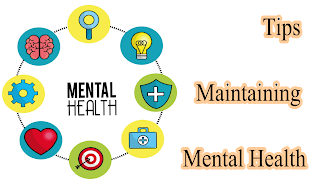
Simple Steps to Maintain Mental Health
Connect with Others
Building and maintaining strong relationships is essential for mental well-being. Surround yourself with supportive people and nurture those connections regularly.
1. Have Fun
Incorporate enjoyable activities into your daily routine. Laughter and enjoyment can significantly boost your mood and reduce stress.
2. Ask for Help
Everyone faces challenges. Don’t hesitate to seek advice and assistance from friends, family, or mentors when needed. Remember, asking for help is a sign of strength, not weakness.
3. Take Care of Your Physical Health
Physical health and mental health are closely linked. Engage in regular exercise, enjoy a nutritious breakfast, stay hydrated, and maintain a balanced diet.
4. Prioritize Sleep
Adequate sleep is crucial for both physical and mental recovery. Aim for at least 7 hours of sleep each night. Establish a consistent sleep schedule, and disconnect from electronic devices an hour before bedtime to improve sleep quality.
5. Manage Stress
Identify the sources of stress and observe how your body responds to it. Learning to manage stress through relaxation techniques such as breathing exercises, yoga, or meditation can greatly improve your mental health.
6. Live in the Moment
Practice mindfulness by focusing on the present. Whether you’re outdoors feeling the sun on your face or indoors noticing the sensations in your body, being mindful of the present moment can enhance your mental well-being.
7. Give Back
Volunteering and helping others can provide a sense of purpose and improve your self-esteem. Find ways to contribute to causes you care about, and you’ll likely feel more connected and valued.
8. Challenge Yourself
Set personal goals and strive to learn new skills. Whether it’s achieving fitness milestones, exploring new hobbies, or acquiring new knowledge, challenging yourself can boost your confidence and mental health.
9. Moderate Substance Use
Avoid using alcohol and drugs as a means to cope with stress or enhance your mood. These substances can exacerbate mental health issues and create additional problems. Opt for healthier coping mechanisms to maintain your well-being.
By following these simple steps, you can significantly improve and maintain your mental health. Remember, small changes can make a big difference.
Additional Tips to Enhance Mental Health
10. Practice Gratitude
Take time each day to reflect on what you’re grateful for. Keeping a gratitude journal can help shift your focus from what’s wrong to what’s right, enhancing your overall mood and outlook.
11. Engage in Creative Activities
Immerse yourself in creative pursuits such as drawing, writing, playing music, or crafting. Creative expression can be a powerful outlet for emotions and can foster a sense of accomplishment and joy.
12. Limit Screen Time
Excessive use of screens, especially social media, can negatively impact mental health. Set boundaries for screen time and take regular breaks to disconnect and recharge.
13. Establish a Routine
Having a daily routine can provide structure and a sense of control. Plan your day with a balance of work, relaxation, and activities you enjoy to keep yourself grounded and productive.
14. Spend Time in Nature
Nature has a calming effect on the mind. Take regular walks in the park, hike, or simply sit outdoors to enjoy the natural surroundings and fresh air.
15. Practice Self-Compassion
Be kind to yourself, especially during difficult times. Recognize that everyone makes mistakes and experiences setbacks. Treat yourself with the same kindness and understanding as you would a friend.
16. Set Boundaries
Establish clear boundaries to protect your time and energy. Learn to say no when necessary and prioritize tasks that are most important to your well-being.
17. Stay Organized
Keeping your environment organized can reduce feelings of stress and overwhelm. Declutter your space and create a system that helps you stay on top of your responsibilities.
18. Develop a Relaxation Routine
Incorporate relaxation techniques such as progressive muscle relaxation, guided imagery, or aromatherapy into your daily routine to help manage stress and promote a sense of calm.
19. Seek Professional Support
If you’re struggling with your mental health, don’t hesitate to seek professional help. Therapists, counselors, and support groups can provide valuable assistance and coping strategies tailored to your needs.
Implementing these additional tips can further enhance your mental well-being, helping you lead a more balanced and fulfilling life. Remember, taking small steps consistently can lead to significant improvements in your mental health.